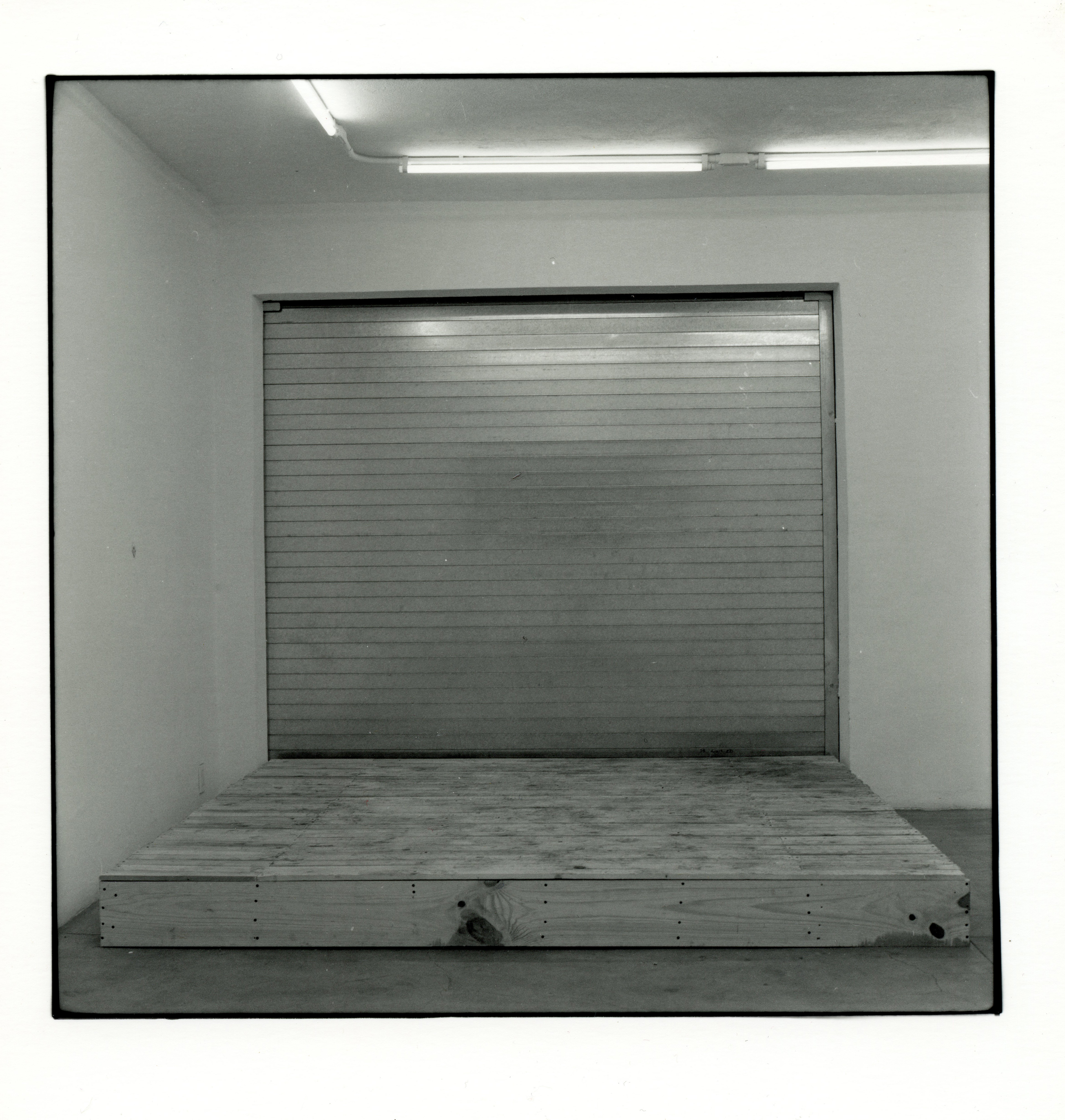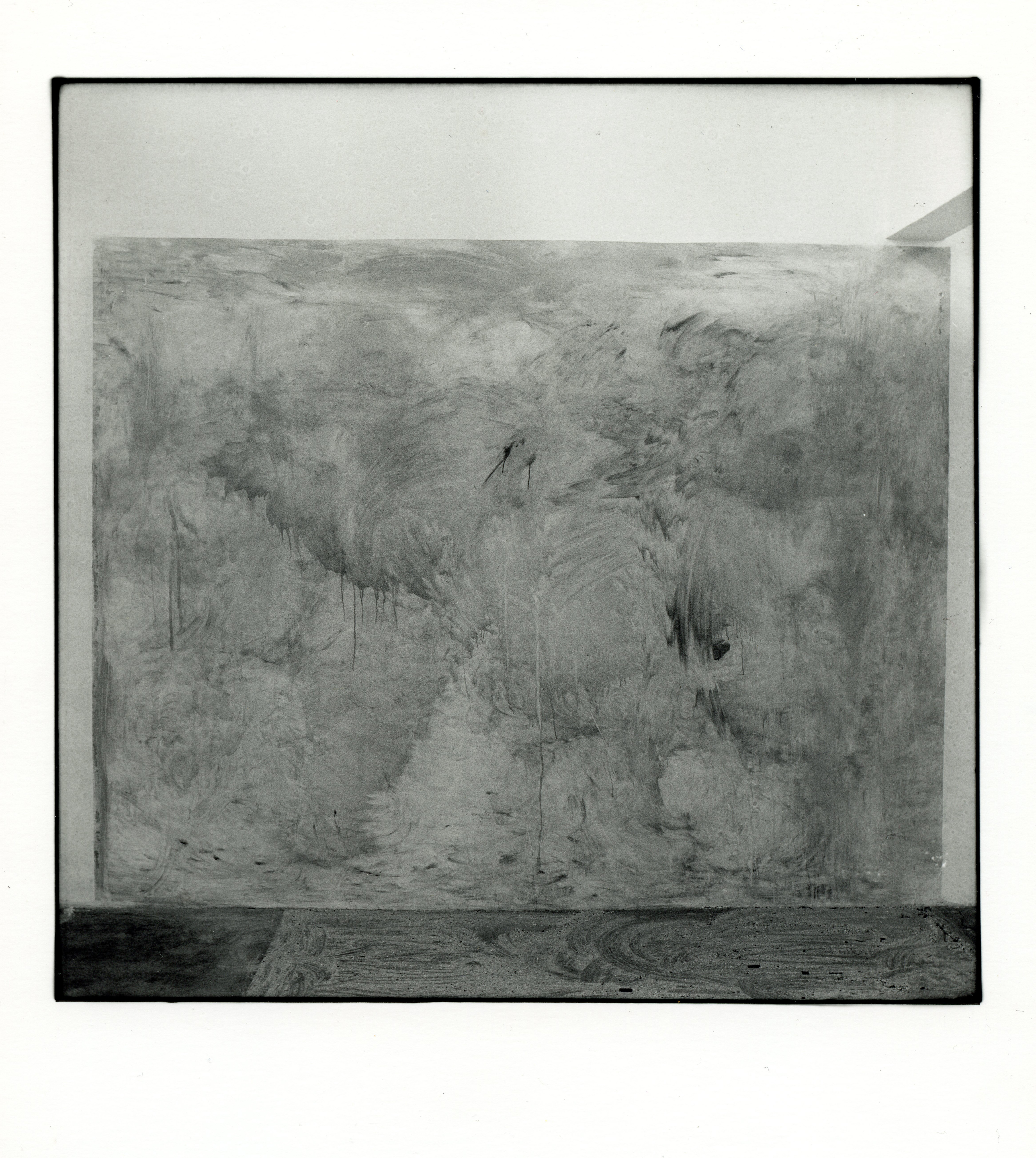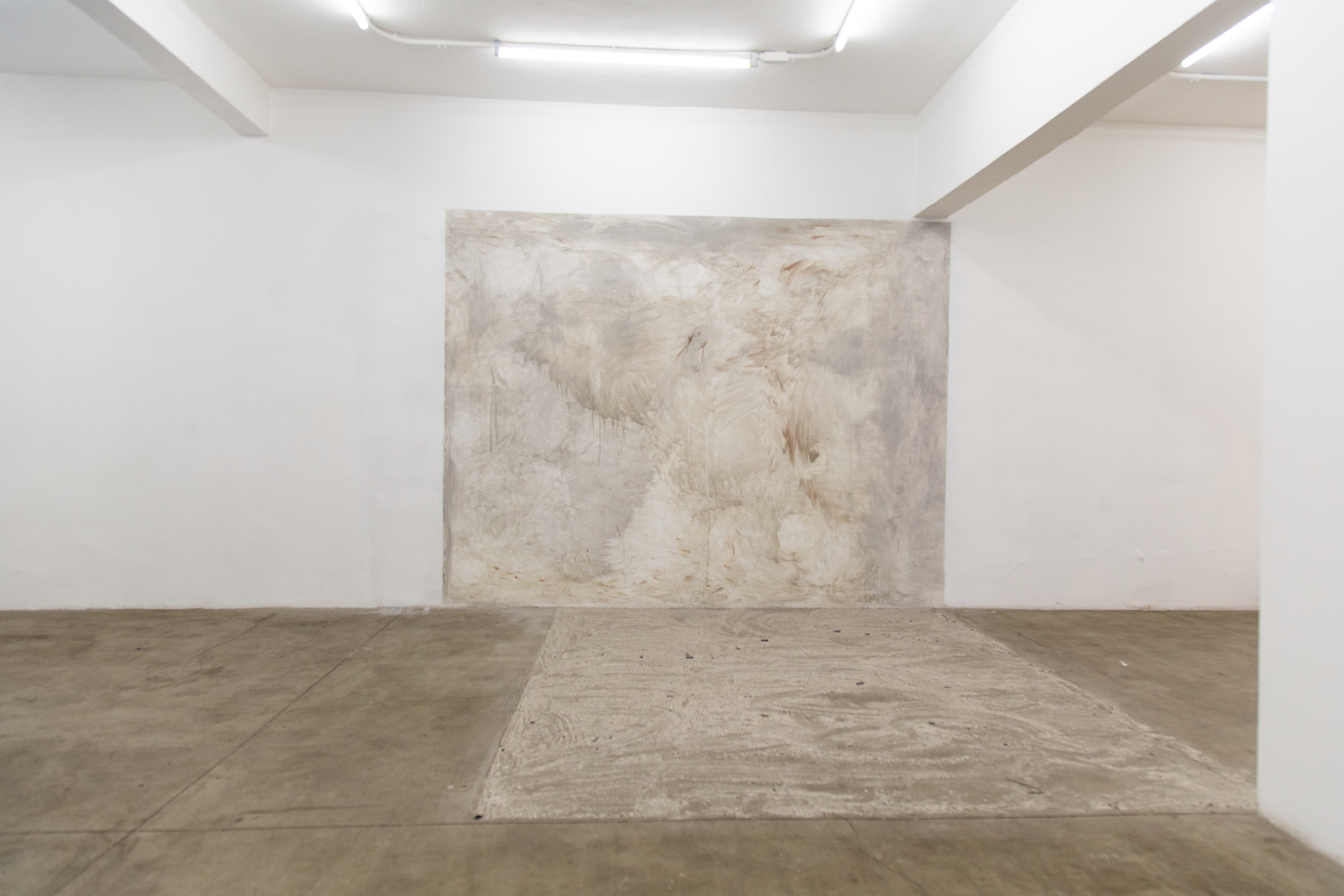
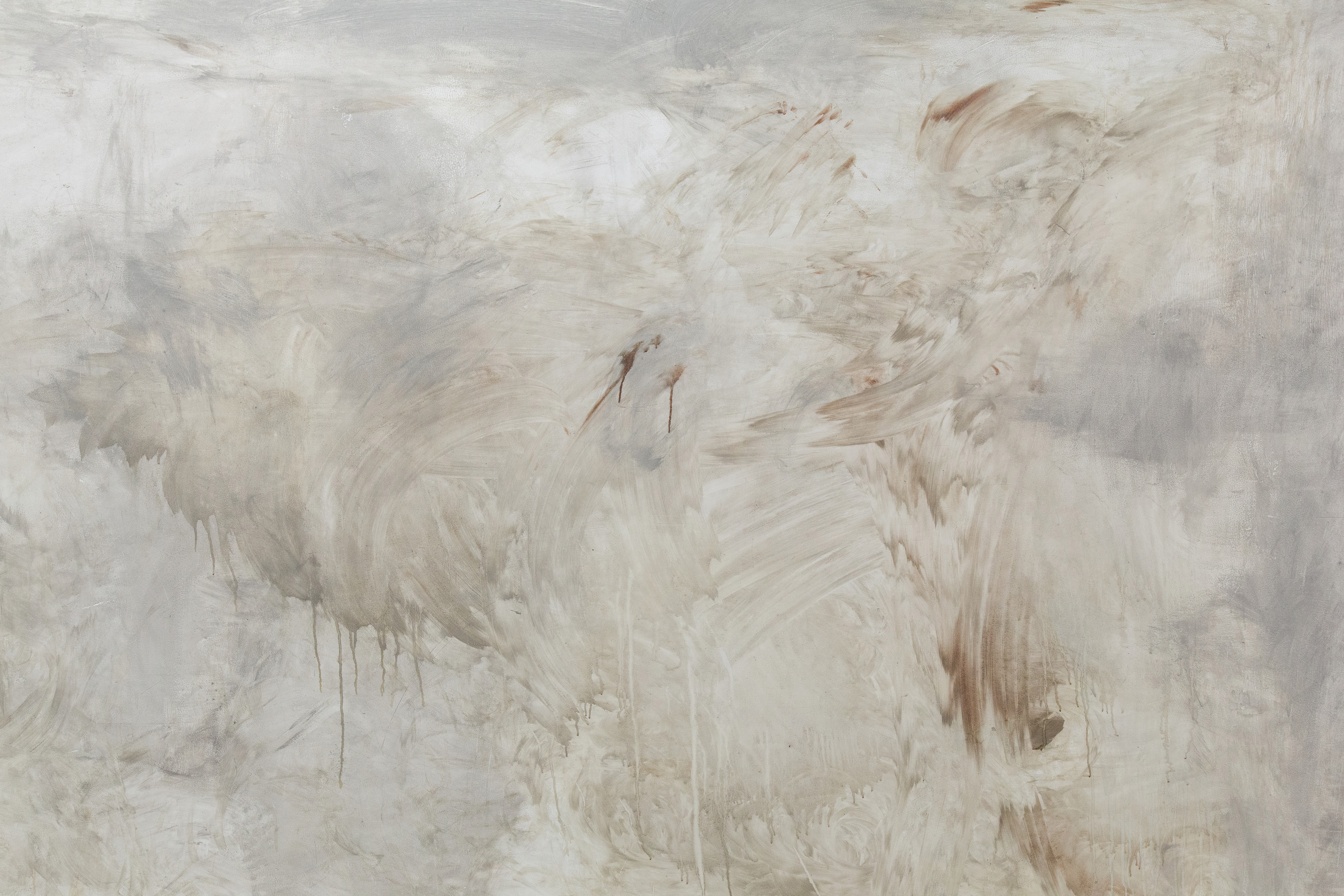


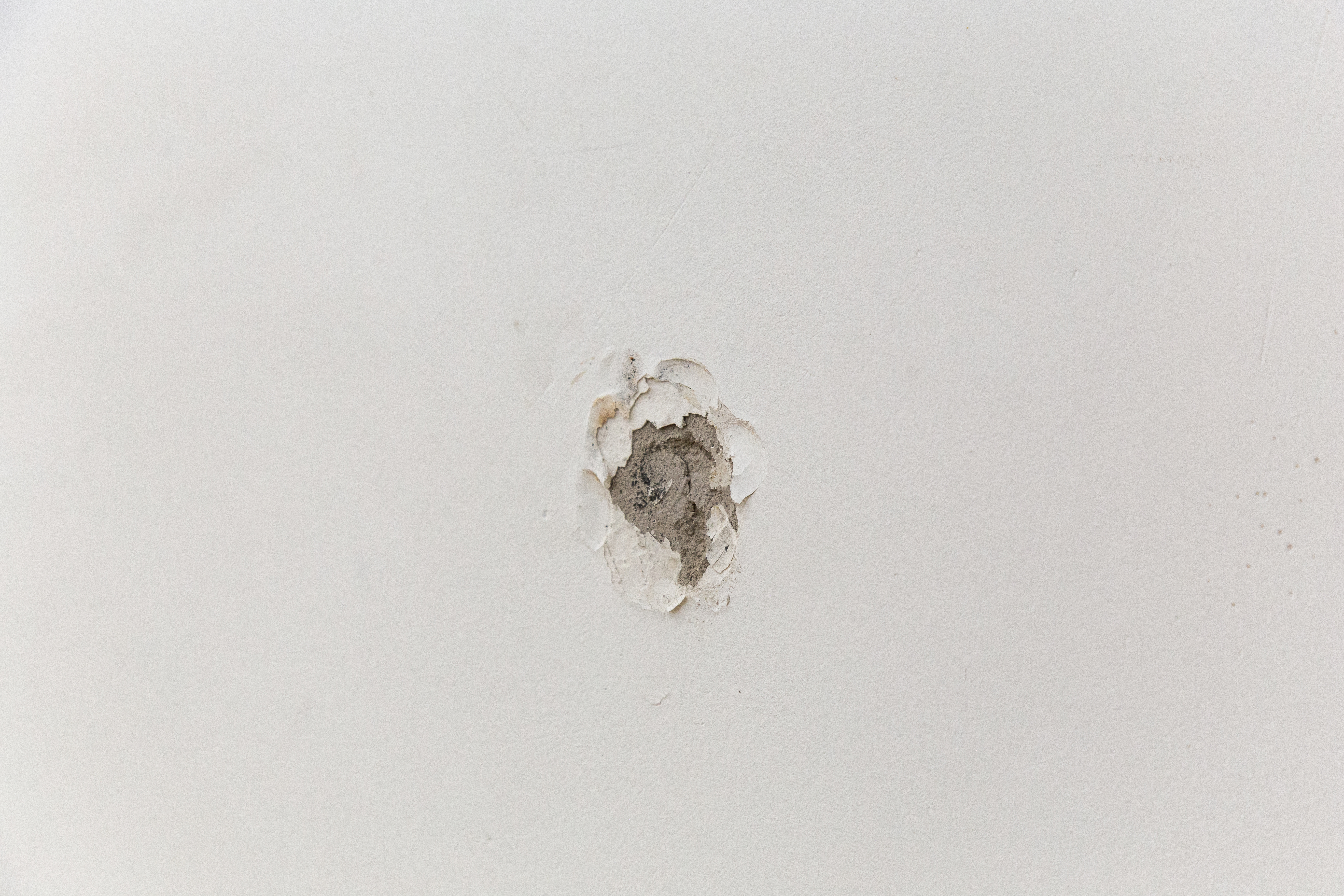





Titicut Follies
solo exhibition
Croma Studio, Mexico City, Mexico
2024
Mixed materials: ash, water blood, cotton fabric ( dyed black), door knob, wood, nails.
Curated by Andrea Fontana
To seclude the image. To forget it in order to reclaim it. To bring it back to a state of abandonment, to its natural state. To its primordial state of pure potential. In Titicut Follies Maureen Muse produced a series of installations that explore the invisibility of the image, what its production hides, and its continuous potential of resignification. Everything is an image, and here, none of them are for us to see. Everything is an image, and here, we are presented with a constellation that moves between the personal and the historical, between the intimate and the universal. Everything is an image, and here, the space expands in itself. Everything is an image and here it presents itself as pure potential, a spatial vision of an obsessive absorption of the image as such.
It all starts with a prohibited image, a censored image. An image that, politically, socially, and ideologically is precluded from public sight. The image of death, of that which is different, of that which must be forgotten so that life keeps moving forward. In his seminal documentary Titicut Follies, the Northamerican filmmaker Frederick Wiseman brings to light a political revindication of that which is invisible, and institutionally so. His attentive sight brings us to the profound violence of institutionally imposed oblivion. His work vindicates a society whose knowledge and sensibility would have posed a direct threat to the development of capital and of what can be broadly encompassed under the spectrum of Occidentality and its status quo.
The exhibition marks a point of inflection in the line of work of Muse. Fusing the cinematographical with the arquitectural, she proposes a process methodology of the image that is developed in situ. Drawing from her formation as a photographer and filmmaker, she proposes this series of installations, these images or, perhaps, these portals.
The structural frames that define the space are reflected on themselves, a compulsive (re)opening on itself. We are presented with a fragment of an ever expanding process, a becoming of images that escapes intention. To reclaim the oblivion, the germen of those structure-spaces, that which must be hidden from sight so that the image can heal. To heal reinterpreting itself, opening up to that which still eludes itself. To reclaim the oblivion and offer it back as a new structure, as a new framework.
– Andrea Fontana
Photos by José Darío
Carpentry by Berenice Rodríguez Ramírez
